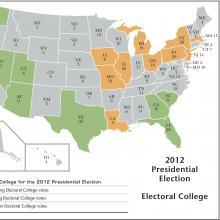value
WHEN MELANIE MOCK, author of the new book Worthy: Finding Yourself in a World Expecting Someone Else, realized as a teen that her newly acquired designer jeans would not lead her to immediate popularity, she bumped into questions I’m sure many of us face: Where does our worth come from? How do we get to the point where we truly believe we are worthy and beloved just as we are, as the children of God? Through sometimes humorous, sometimes heartrending, and always poignantly honest stories from her own experience, Mock opens the vulnerable space within to attend to the stories we tell ourselves about our value.
Mock’s stories point out the hidden messages about worthiness given to us by American culture, in particular the evangelical subculture, contrasting the messages of the “purity culture” with the biblical promises of our innate belovedness. She builds on the groundwork laid in If Eve Only Knew: Freeing Yourself from Biblical Womanhood and Becoming All God Meant for You to Be (Chalice Press), which she co-wrote with Kendra Weddle Irons.
While she focuses primarily on the messages given to white evangelical women, since this is her experience, she recognizes her privilege, as well as the parallels between the unhealthy and often impossible implicit standards American evangelicals hold for women, people of color, and LGBTQ+ folks, all who do not meet a white male “norm.” Mock addresses how evangelical cultures tend to create double standards for women, requiring a type of “purity” that has nothing to do with Christianity. She shares honestly about the fear that even when she seems to be fitting the mold of the ideal Christian woman, at any moment the façade of the successful mother/wife/professor will be unmasked.
The United States is the only democratic country in the world where a candidate can be elected as president without earning the highest number of votes.
In the midst of competing campaigns and critical choices leading up to Election Day, one of the most common assumptions is that U.S. citizens directly select their president. However, far too many fail to fully understand that such direct selection is not our reality, for within our complex electoral system – known as the Electoral College – the will of the people does not always translate into final results. During the presidential elections of 1876, 1888, and 2000, the leader in popular votes did not claim victory, and some believe a similar scenario may take place in the near future. And so, when a candidate receives the majority of votes but is not sworn into office, we recognize a gross injustice that requires immediate and significant transformation.

